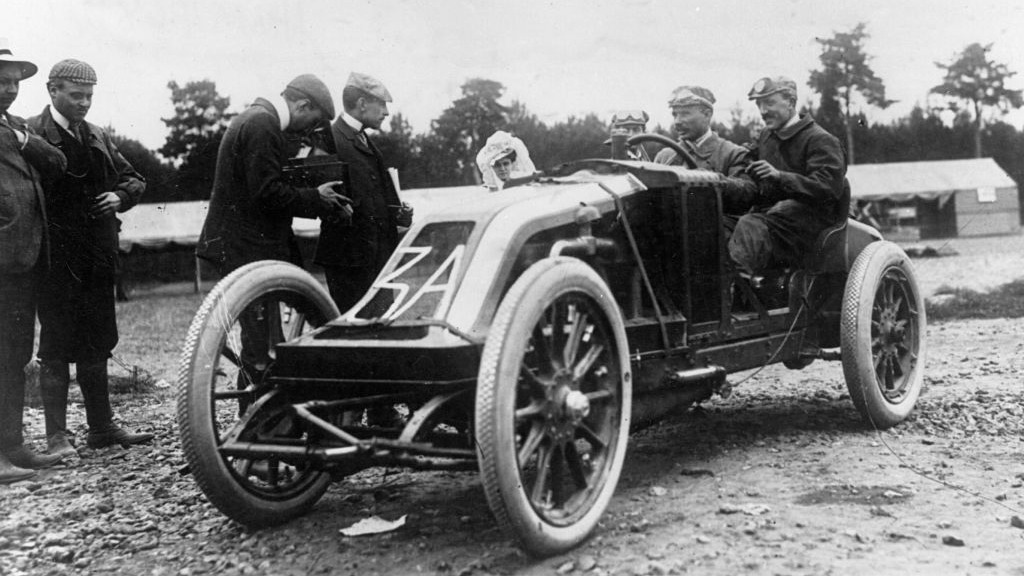26 June 1906: The first Grand Prix
The first 'proper' Grand Prix on closed public roads was held by the Automobile Club de France (ACF), on this day in June 1906.


Get the latest financial news, insights and expert analysis from our award-winning MoneyWeek team, to help you understand what really matters when it comes to your finances.
You are now subscribed
Your newsletter sign-up was successful
Want to add more newsletters?
The development of the first motorcars during the 1890s and 1900s quickly led to the first motor races. Speeds were extremely low in the early days: onecontest in 1894 was won by a vehicle that went at an average speed of only 12 miles per hour.
The first 'proper' Grand Prix on closed public roads was held by the Automobile Club de France (ACF) in June 1906, near the town of Le Mans. The idea quickly spread around Europe, and in 1922 the Association Internationale des Automobile Clubs Reconnus (AIACR) began running a pan-Europe contest.
By the 1930s there were regular European Championships, until racing was stopped on the outbreak of World War II. After the war, the AIACR, by then renamed the Federation Internationale de l'Automobile (FIA), organised the first World Championship in 1950.
Try 6 free issues of MoneyWeek today
Get unparalleled financial insight, analysis and expert opinion you can profit from.

Sign up to Money Morning
Don't miss the latest investment and personal finances news, market analysis, plus money-saving tips with our free twice-daily newsletter
Don't miss the latest investment and personal finances news, market analysis, plus money-saving tips with our free twice-daily newsletter
During the 1960s and early 1970s the sport steadily gained popularity, although the money involved remained small by modern standards. It was the growth of global television audiences that transformed the economics of the sport, and this started a financial battle between the FIA and the teams in the late 1970s.
Bernie Ecclestone, who owned the Brabham team, negotiated the 1981 Concorde agreement that divided the revenue between the FIA and the coalition of teams and constructors.
In 1987, he set up his own company, Formula One Promotions and Administration, which received the right to negotiate television contracts for Formula One and retain a share of the resulting revenue, in return for putting up the prize money.
This proved to be an incredibly lucrative deal for Ecclestone, whose family fortune is now estimated to be $2.4 billion, according to Forbes.
Get the latest financial news, insights and expert analysis from our award-winning MoneyWeek team, to help you understand what really matters when it comes to your finances.

-
 Review: Pierre & Vacances – affordable luxury in iconic Flaine
Review: Pierre & Vacances – affordable luxury in iconic FlaineSnow-sure and steeped in rich architectural heritage, Flaine is a unique ski resort which offers something for all of the family.
-
 Could you get cheaper loans under ‘significant’ FCA credit proposals?
Could you get cheaper loans under ‘significant’ FCA credit proposals?The Financial Conduct Authority has launched a consultation which could lead to better access to credit for consumers and increase competition across the market, according to experts.
-
 31 August 1957: the Federation of Malaya declares independence from the UK
31 August 1957: the Federation of Malaya declares independence from the UKFeatures On this day in 1957, after ten years of preparation, the Federation of Malaya became an independent nation.
-
 13 April 1960: the first satellite navigation system is launched
13 April 1960: the first satellite navigation system is launchedFeatures On this day in 1960, Nasa sent the Transit 1B satellite into orbit to provide positioning for the US Navy’s fleet of Polaris ballistic missile submarines.
-
 9 April 1838: National Gallery opens in Trafalgar Square
9 April 1838: National Gallery opens in Trafalgar SquareFeatures On this day in 1838, William Wilkins’ new National Gallery building in Trafalgar Square opened to the public.
-
3 March 1962: British Antarctic Territory is created
Features On this day in 1962, Britain formed the British Antarctic Territory administered from the Falkland Islands.
-
10 March 2000: the dotcom bubble peaks
Features Tech mania fanned by the dawning of the internet age inflated the dotcom bubble to maximum extent, on this day in 2000.
-
9 March 1776: Adam Smith publishes 'The Wealth of Nations'
Features On this day in 1776, Adam Smith, the “father of modern economics”, published his hugely influential book The Wealth of Nations.
-
 8 March 1817: the New York Stock Exchange is formed
8 March 1817: the New York Stock Exchange is formedFeatures On this day in 1817, a group of brokers moved out of a New York coffee house to form what would become the biggest stock exchange in the world.
-
7 March 1969: Queen Elizabeth II officially opens the Victoria Line
Features On this day in 1969, Queen Elizabeth II took only her second trip on the tube to officially open the underground’s newest line – the Victoria Line.